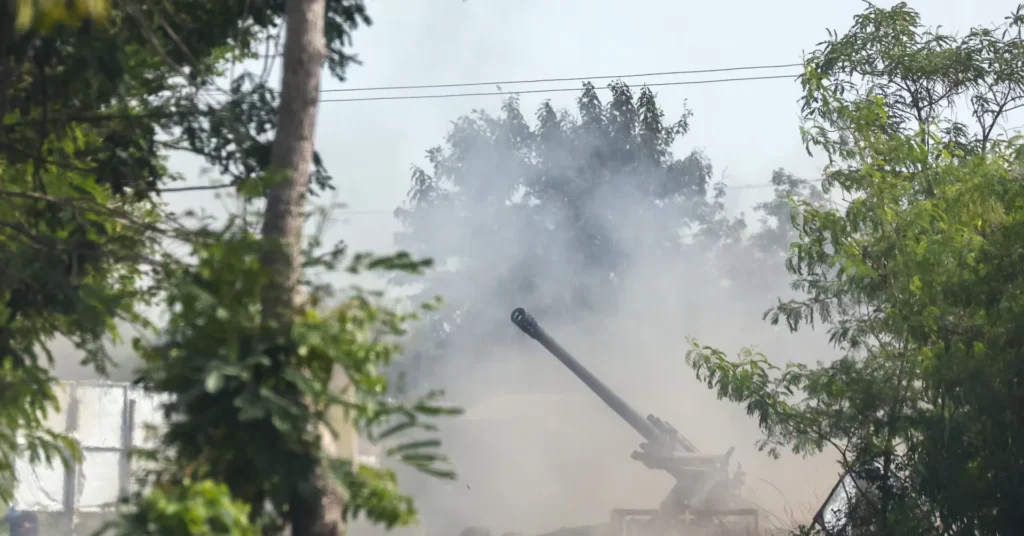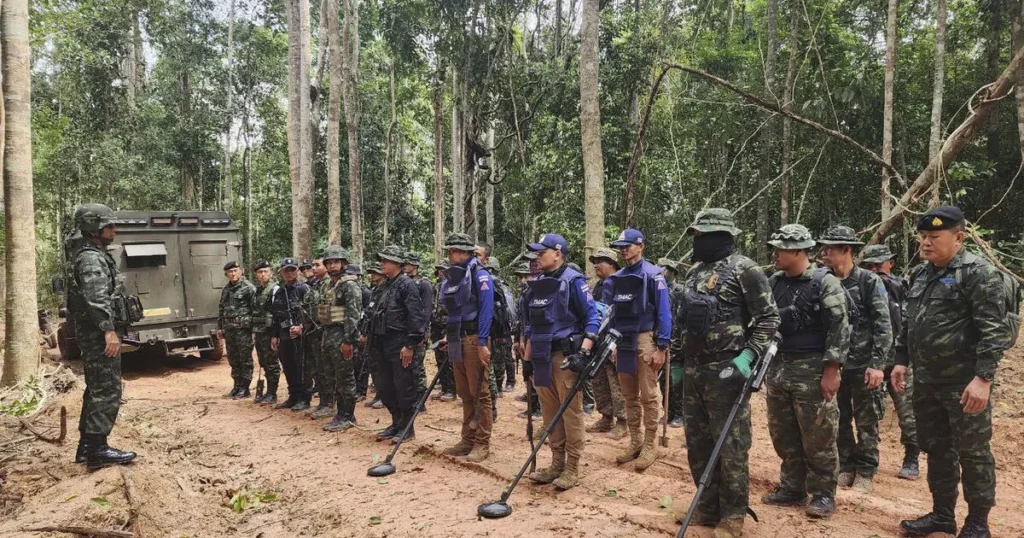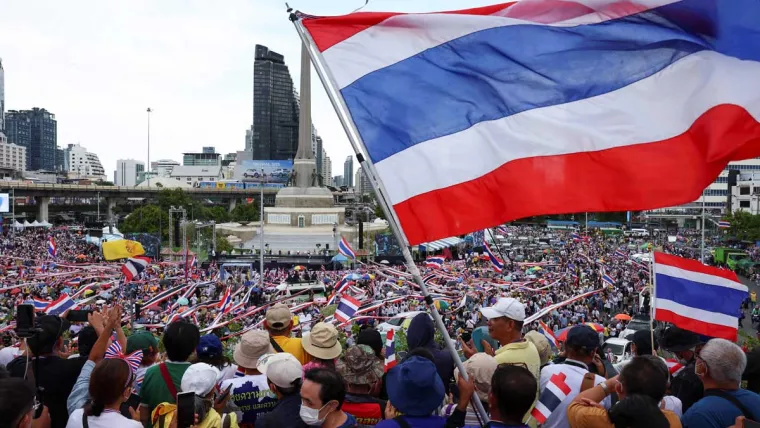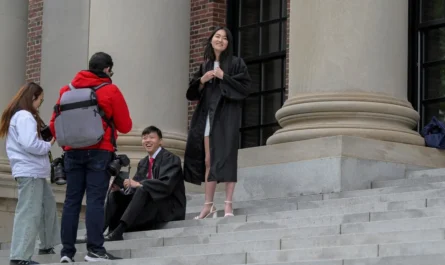Bangkok, Thailand – July 25, 2025 – Thailand has firmly rejected offers of international mediation to resolve the escalating border conflict with neighboring Cambodia, insisting on a bilateral solution to the recent flare-up in hostilities. The announcement comes as fighting along the disputed frontier intensifies, marking the heaviest clashes between the two Southeast Asian nations in over a decade.
For the second consecutive day, heavy artillery exchanges have rocked multiple locations along the border, particularly around long-contested areas. Tragically, at least 16 people, predominantly Thai civilians, have lost their lives in the violence.
The widespread fighting has also triggered mass evacuations, with tens of thousands of civilians fleeing their homes in border provinces on both sides. Thai authorities report over 138,000 people displaced in four border provinces, while Cambodian officials state more than 4,000 have evacuated.

Bilateral Approach Preferred, Doors Remain Open
Thai Foreign Ministry spokesperson Nikorndej Balankura, speaking to Reuters, affirmed Bangkok’s stance. “I don’t think we need any mediation from a third country yet,” Balankura stated, emphasizing that “a bilateral mechanism is the best way out.” He added that Thailand’s “doors are still open” for dialogue but stressed that Phnom Penh must cease attacks first.
This rejection of external involvement comes despite offers from the United States, China, and Malaysia, the current chair of the ASEAN regional bloc, to facilitate dialogue.
A History of Contention Fuels Current Crisis
The current surge in violence is rooted in a long-standing border dispute, often centered around ancient temples. The 800-kilometer frontier has been a source of contention for over a century, tracing back to ambiguous demarcations from French colonial rule in the early 1900s.
A key flashpoint has been the 11th-century Preah Vihear temple. While the International Court of Justice (ICJ) awarded the temple to Cambodia in 1962, and reaffirmed this in 2013 by declaring the surrounding land also Cambodian, Thailand has consistently disputed aspects of the border delineation, particularly concerning other ancient sites like Ta Muen Thom.
Tensions have simmered for years, with significant flare-ups in 2008 and 2011 that resulted in numerous casualties. The current crisis erupted following a landmine explosion on Wednesday that injured several Thai soldiers.
Thailand accused Cambodia of newly laying these mines, a charge Phnom Penh has dismissed as baseless, attributing them to remnants of past conflicts. This incident quickly led to a diplomatic breakdown, with both nations recalling their ambassadors and expelling envoys.

Escalation and International Concern
The intensity of the current fighting has drawn immediate international concern. UN Secretary-General António Guterres has urged both sides to “exercise maximum restraint and address any issues through dialogue.” Cambodian Prime Minister Hun Manet has appealed to the United Nations Security Council to convene an emergency meeting, which was held behind closed doors on Friday to discuss the situation.
Reports from the ground indicate the use of heavy weaponry, including artillery and F-16 fighter jets, by Thailand in response to what Bangkok describes as Cambodian rocket attacks. Cambodia, in turn, has condemned what it calls “unprovoked and premeditated military aggression” by Thailand, vowing to seek international justice for alleged damage to the Preah Vihear temple site.
As the conflict shows no immediate signs of de-escalation, Thailand’s insistence on a bilateral resolution places the onus squarely on direct negotiations between the two neighbors, even as the human cost of the renewed fighting continues to mount. The international community watches closely, hoping that diplomatic channels, however direct, can eventually pave the way for a lasting peace.
Final Thoughts




